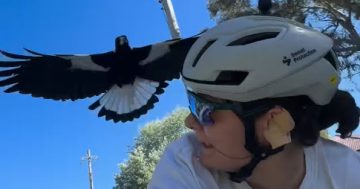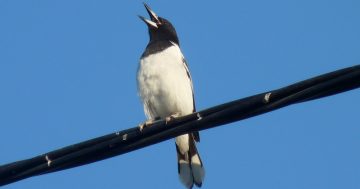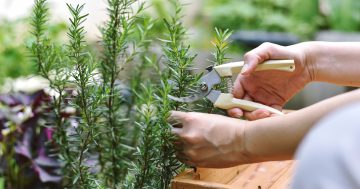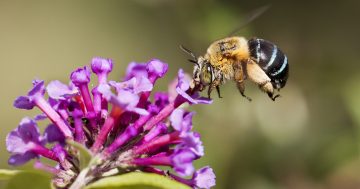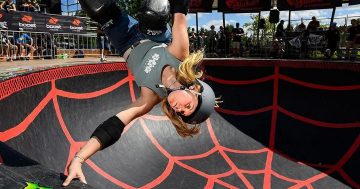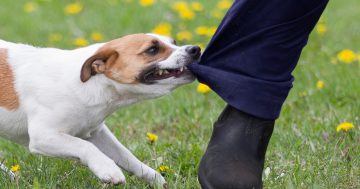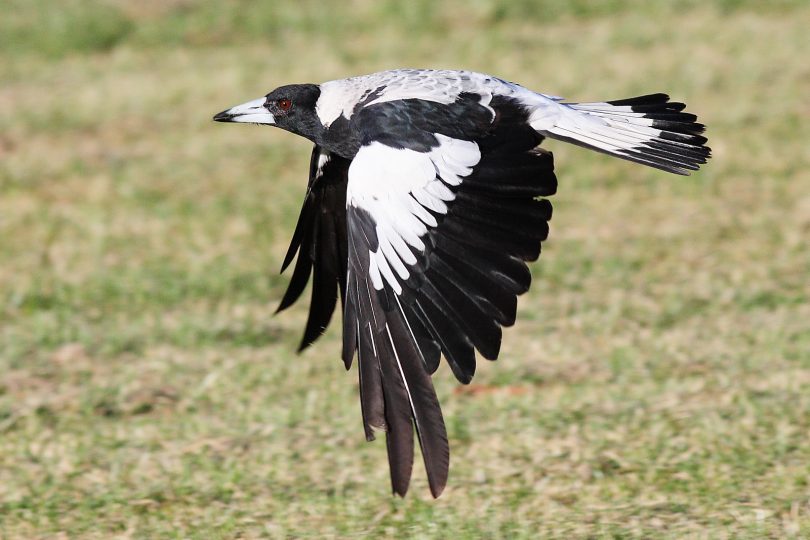
Masks may cause more magpie swooping. Photo: Fir0002/Flagstaffotos.
Facemasks could see magpies swoop more Canberrans than ever before this spring breeding season, an expert warns.
While facemasks help prevent the spread of COVID-19, an unintended side-effect is they may provoke more magpies to swoop you.
The iconic birds recognise people by their facial features and if our faces are obscured, they can’t tell friend from foe.
Griffith University magpie expert Emeritus Professor Darryl Jones says we’d all become targets.
“Because they can’t distinguish between who they think is a real problem they start to think, ‘it’s one of these people hiding behind a mask, okay I’ll hit the lot of them,” he said.
Being the ‘Bush Capital’ only makes the swooping situation worse.
“The density of magpies in Canberra is higher than anywhere else [in Australia], it follows that more magpies means more attacks.
“Canberra congratulations, you are the swooping capital of Australia.”
Swooping increased in Melbourne due to mask wearing when the city was locked down during the 2020 magpie breeding season.
“A lot more people reported magpies swooping in the areas where there was just a few people being swooped [before],” Professor Jones says.
“There were a lot more people being swooped and the people were surprised by that.”
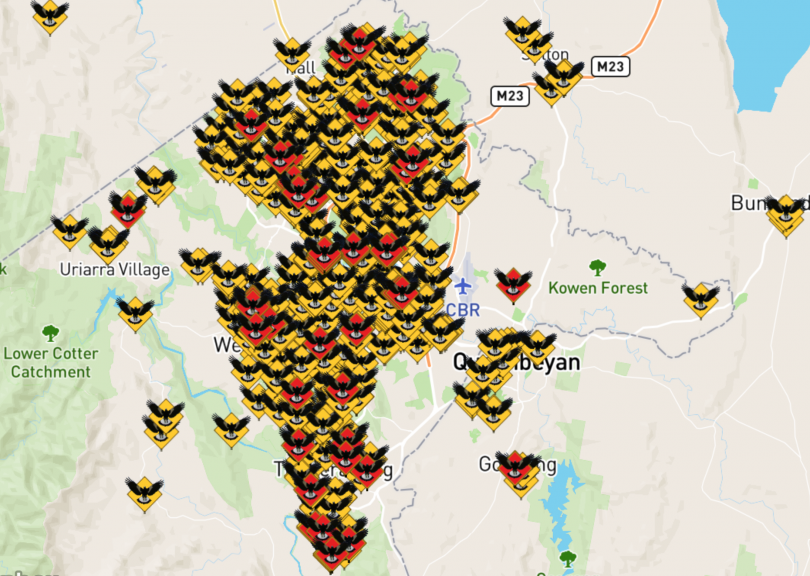
Here’s a magpie swooping map from 2020. Now imagine more. Image: Magpie Alert.
Experts say swooping isn’t an act of outright aggression by magpies – it’s more a warning shot to let interlopers know they’re getting too close to a nest of vulnerable chicks.
Generally, only about 10 per cent of magpies swoop and only half of that swoop humans.
Even then, they only go for one or two people they consider a threat.
“They know the people that live in that territory with them, they recognise them individually,” Professor Jones says.
“They recognise them by their facial features just like we do. Putting on a mask means that they won’t be able to do that very well at all.”
Magpies are fiercely territorial and may live in one area of around 20 to 30 houses permanently, leaving few good spots for younger pairs.
While it’s not exactly known why they choose a nesting site, they generally have a few trees, grassed area for ground feeding and importantly – minimal threats.
However with the lockdown making Canberra a ghost town, younger magpies may mistakenly believe they’ve picked a nice, quiet spot.
“A schoolyard or a busy car park or a very busy inner-city park,” Professor Jones says.
“If they were making that decision on the basis of how many people were around, they could make a bad decision if no people were around at the time.”
Once crowds do return to those areas, it could lead to very stressed and over-protective magpies.
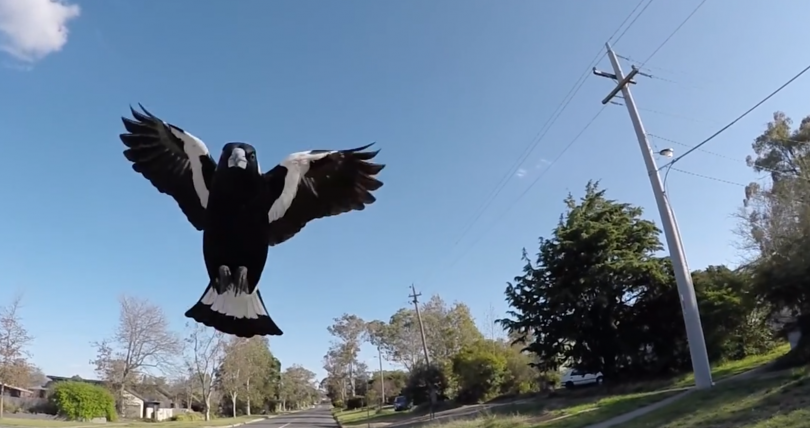
Most of us know the fear of hearing a magpie swoop. Photo: ACT Parks and Conservation Service.
So what can we do about it this unusual swooping season? Generally, the best advice is to leave the area and try to avoid it until summer.
“If you get swooped you can tell yourself straight away I’m near a nest of baby magpies, this guy doesn’t want me here,” he says.
“That swoop is a signal to me to get away and leave.”
Also, try to keep an eye on them as you go.
“They almost never attack from the front, they’re stealth bombers they’ll come from behind,” Professor Jones says.
“So if you can turn and look at the magpie as you leave, it won’t swoop you.”
When health regulations eventually allow, he recommended you let the magpie know you’re not the threat they’re looking for – but only in line with public health orders.
“This would be a rare opportunity where taking your mask off or at least pulling it down so they can see your face may be a good idea.”
Original Article published by Damien Larkins on The RiotACT.



